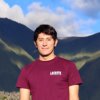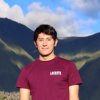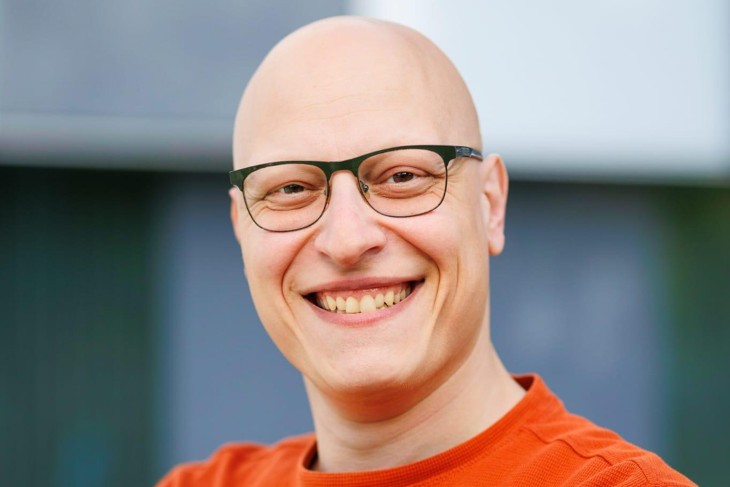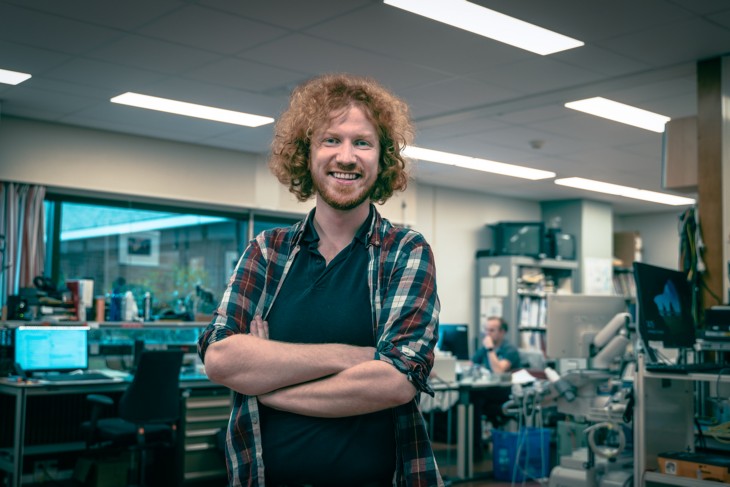Describe your student years in three words.
- Carlos

Busy, exciting, and enjoyable.
Why enjoyable?
- Carlos

A big part of my student life was the study association ConcepT, which organised all sorts of activities—lunch lectures with professionals, even a football tournament. My best memories are from the Thursday drinks after lectures: it was a lot of fun and a great way to take a break from studying. I also enjoyed learning new things.
Which was your favourite course?
- Carlos

There was a course about ocean waves, where I learned about wave height, wave periods, and the main factors that influence wave behaviour. It helped me answer something I had seen back home in Ecuador. I had visited a beach on the Galapagos Islands and saw that at one point, it was all rocky, but a few months later, it was sandy with no rocks at all. I wanted to understand why that happened. In this course, I found out that wave energy shifts sand and rocks around depending on the season. In winter, the waves are stronger, which means they move the rocks further out and bring in different sediment. I finally got an answer to something I had been curious about for years!
You are now a metocean engineer at Van Oord. What do you do?
- Carlos

I analyse meteorological and ocean data: wind speeds, wave heights, and ocean currents. It is important to identify these conditions and storm seasonality to plan the most optimal operation period. One of my tasks is to use data and models to predict metocean conditions at different locations, which is called hindcasting. We use large sets of satellite data to reconstruct past ocean conditions and model how waves may behave in specific regions.
Why did you choose this job?
- Carlos

I heard about Van Oord during one of the lunch lectures. I thought their projects were impressive, so when I saw an open position, I immediately applied. I was lucky with the timing because I was just about to graduate!
Why did the company make such a big impression on you?
- Carlos

Their work has a big impact on the environment, and it is exciting to contribute to that. Van Oord specialises in dredging, which is moving sand from the sea, essential for deepening navigation channels and expanding coastlines. The company also works on offshore wind farms: installing turbines, laying cables, and ensuring the energy from the wind farms reaches land, all leading to a switch to renewable energy in the future.
What have you taken from your studies in Civil Engineering & Management into your job?
- Carlos

All data analysis courses were useful. My thesis project also helped a lot. I worked with a model called Delft3D and learned a lot about balancing accuracy and speed: if a model is too detailed, it takes months to process, but if it is too simple, the results might be unreliable. So, balancing what you want, how fast you need it, and how reliable your resources are is crucial. Also, everything I learned about waves—short waves, long waves, and how they change in deep versus shallow water—is relevant to what I do now.
And what did you learn on the job?
- Carlos

Here, I use different modelling software, so that was a big switch. The main principles are the same, but the interfaces and solving methods vary: some are more user-friendly than others. However, once you understand the basics, it is a matter of adapting.
What do you want to achieve in 10 years?
- Carlos

I want to become an expert in my field and, eventually, share what I have learned. I used to be a teaching assistant and enjoyed it. Who knows? Maybe one day I will be teaching again.
What is your advice to students?
- Carlos

The Master’s in Civil Engineering & Management offers four different paths, so my advice is to get to know companies in the field you choose early on. The lunch lectures are a great way to discover companies and meet professionals. When you start applying for jobs, knowing the company’s work makes a huge difference. If you apply just because you meet the requirements, you might end up in a job that isn’t for you. But if you already know what a company does and you like it, the whole experience will be much better.
Come study at the University of Twente
Did you like this article? Then you might find these study programmes interesting as well.
Related stories
 student GraduatesFrom student to geospatial consultant: “I support food security and emergency response.”Stella is a geospatial consultant at the UN Food World Programme, the world’s largest humanitarian organisation bringing food assistance during emergencies. She completed the Master’s in Geo-Information Science & Earth Observation at the University of Twente.
student GraduatesFrom student to geospatial consultant: “I support food security and emergency response.”Stella is a geospatial consultant at the UN Food World Programme, the world’s largest humanitarian organisation bringing food assistance during emergencies. She completed the Master’s in Geo-Information Science & Earth Observation at the University of Twente. student GraduatesFrom student to integrated circuit design engineer: “I design chips that support people’s health.”Oğuz is an integrated circuit (IC) design engineer at Sencure, a start-up developing chip technology for wearable medical devices. He completed the Master’s in Embedded Systems at the University of Twente.
student GraduatesFrom student to integrated circuit design engineer: “I design chips that support people’s health.”Oğuz is an integrated circuit (IC) design engineer at Sencure, a start-up developing chip technology for wearable medical devices. He completed the Master’s in Embedded Systems at the University of Twente. student GraduatesFrom student to biomedical engineer: “I keep hospital equipment safe and reliable.”Ben is a biomedical engineer at the ZGT hospital in Hengelo and Almelo. He completed the Master’s in Biomedical Engineering at the University of Twente.
student GraduatesFrom student to biomedical engineer: “I keep hospital equipment safe and reliable.”Ben is a biomedical engineer at the ZGT hospital in Hengelo and Almelo. He completed the Master’s in Biomedical Engineering at the University of Twente.

